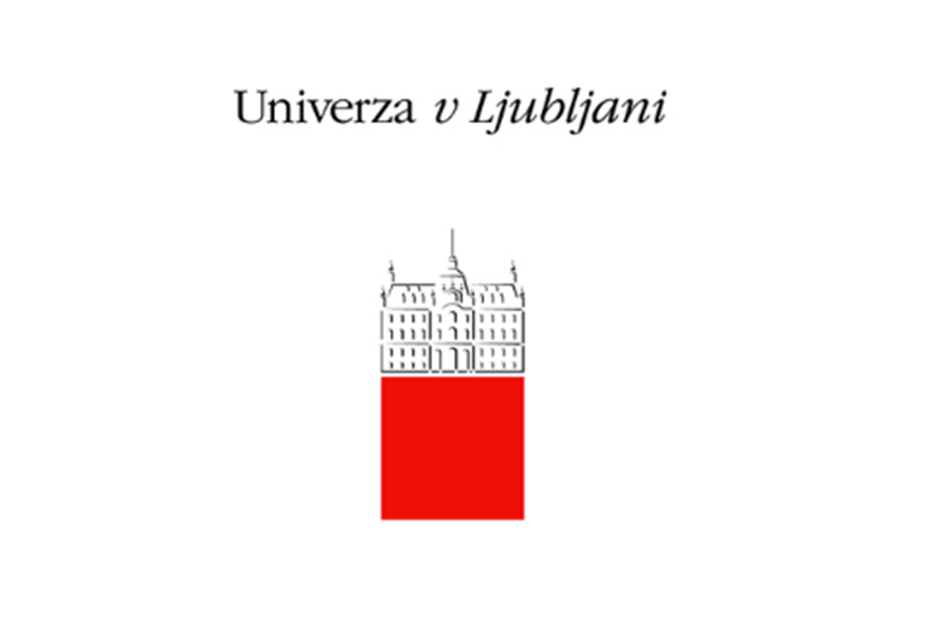From Romania to all of Europe
At the virtual European Code League final, a team from Romania impressed and convinced the jury with their innovative coding project for STEM education. The team has now the chance to inspire teachers throughout Europe.
At the virtual European Code League final, a team from Romania impressed and convinced the jury with their innovative coding project for STEM education. The team has now the chance to inspire teachers throughout Europe.
Aquí STEAM UPC is an initiative of the Universitat Politècnica de Catalunya (UPC) to attract female talent to study technology and engineering targeted at girls between 9 and 14 years old in Catalonia. The program aims to break the stereotypes and gender roles established in society and make visible new female references in an attractive and close way for girls.
Aquí STEAM UPC is an initiative of the Universitat Politècnica de Catalunya (UPC) to attract female talent to study technology and engineering. The programme is specifically aimed at girls between 9 and 14 years old in Catalonia. The program aims to break the stereotypes and gender roles established in society and make visible new female references in an attractive and close way for girls. The main objective of the e Aquí STEAM UPC is to:
One of the key components of the project is a training programme aimed at teachers of primary and secondary schools, aimed at introducing a gender perspective in educational action, in accordance with the principles of co-education and equal opportunities. Schools participating in the project obtain:
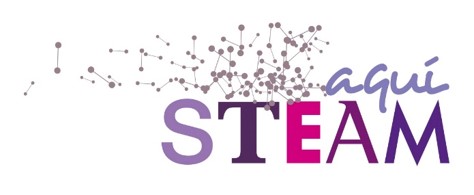
The pilot project (first scholar year) has been highly valued by schools. Of the 23 that responded to the satisfaction survey, 18 schools rated the activities with the highest score (82%), while 19 schools rated the UPC teachers and researchers who presented the activities with the highest score (86% of schools).
The UPC offers schools and institutes in Catalonia this project that highlights the areas of STEAM (science, technology, engineering, art and mathematics) and shows that professional skills are not linked to gender. For scholar year 2019-2020 a total of 28 schools (upper primary and lower secondary school levels) participated in the project (2.000 boys and girls). In this first edition 40 activities have been developed (talks, workshops, conferences) and 28 professors and researchers from the UPC have been involved in liaising with the schools. For scholar year 202-2021, 26 new schools have been added to the program.
The project funding is included in the UPC budget, following the UPC action plan 2018-2021.
The STEAM Project: Aerospace Research applied to the classroom (from here on: 'STEAM project'), is a project of The Ministry of Education and Sports and the Junta de Andalucía which aims to bring teachers and students closer to aerospace research and improve students' skills in science and technology by putting them in the in the role of researcher about the advances in aerospace study. The project is aimed at public educational centers in Andalusia (Spain) for primary education, compulsory secondary education and high school.
the Ministry of Education and Sports has been developing cooperation projects with leading entities in the aerospace industry, such as the European Space Agency (ESA) through the ESERO educational project, based in the Granada Science Park and Airbus Space, based in Seville. This type of collaboration has made it possible to verify the effectiveness of the STEAM methodology in general, and aerospace research in particular, in relation to increasing the capacities and competencies of students. Against this background, the General Directorate of Teacher Training and Educational Innovation has considered it essential to promote aerospace research projects, which favour the development and deepening of the basic competencies of students from the interdisciplinarity offered by a STEAM approach, putting the student in the role of a researcher focused on the advances of the aerospace study, its application to health research, technological advances in our society and advances in the prevention of climate change, in relation to the pillars of the Horizon Europe. In this context the Ministry of Education and Sports has launched the STEAM project «Aerospace Research applied to the classroom» which has as its main objective to bring the teaching staff and students of Andalusian public schools closer to the study and aerospace research applied to the classroom. The specific objectives of the project are:
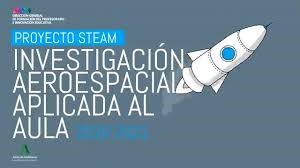
Schools will document the impact of their participation:
a) A brief summary of the experience carried out.
b) The innovation carried out with the resources provided.
c) The section of the curriculum, unit, subject and course where the resources have been integrated.
d) The estimated impact on the number of male and female students.
e) The links or publications that have been disseminated
f) Participation in the formation of aerospace competitions.
g) The list of teachers who have actively collaborated in the project.
The project is addressed to Andalusian public schools which provide primary education, compulsory secondary education and high school, up to a maximum of 160 schools.
The project is funded through in combination of sources.
Inspira STEAM is a pioneering project for the promotion of scientific-technological professions among girls through group mentoring. The programme is focused on awareness-raising and orientation actions through lectures ; mentoring by female professionals from the world of research, science and technology. At the heart of Inspira STEAM project are the mentors, who voluntarily bring their day-to-day lives closer to girls and boys (who are 11 years old) through six work sessions during school hours. Through the meetings between the mentor and the girls the project aims to help dispel doubts and objections about the professions in science and technology, clarify their motivations and strengthen their self-esteem to start this professional path.
Inspira STEAM is a pioneering project for the promotion of scientific-technological professions among girls. The programme is focused on awareness-raising and orientation actions through lectures ; mentoring by female professionals from the world of research, science and technology. At the heart of Inspira STEAM project are the mentors, who voluntarily bring their day-to-day lives closer to girls and boys (who are 11 years old) through six work sessions during school hours. Through the meetings between the mentor and the girls the project aims to help dispel doubts and objections about the professions in science and technology, clarify their motivations and strengthen their self-esteem to start this professional path.
It's the first time that the group-mentoring technique has been used in a project to promote STEAM (Science, Technology, Engineering, Arts and Maths) among elementary school students. The Inspira STEAM-project was developed in response to the need to promote scientific and technological vocations among students and the urgency to do so among girls who are underrepresented in these fields. The number of students who opt for technology training decreases every year. Among female, the figures are even worse: Despite the fact that 54.3% of all students in the Spanish university system are women, their presence in technical degrees such as Engineering and Architecture falls to 26.4%.
The core of the project are the mentoring-sessions. All of the mentors are scientists and technologists active in various fields: academic, business, research, management, etc. During the work sessions, topics such as gender stereotypes and the important role of women and science throughout History are addressed. With these meetings between the mentor and the girls, the aim is to help dispel doubts and objections about the professions in science and technology, clarify their motivations and strengthen their self-esteem to start this professional path. The main objectives of the project are:
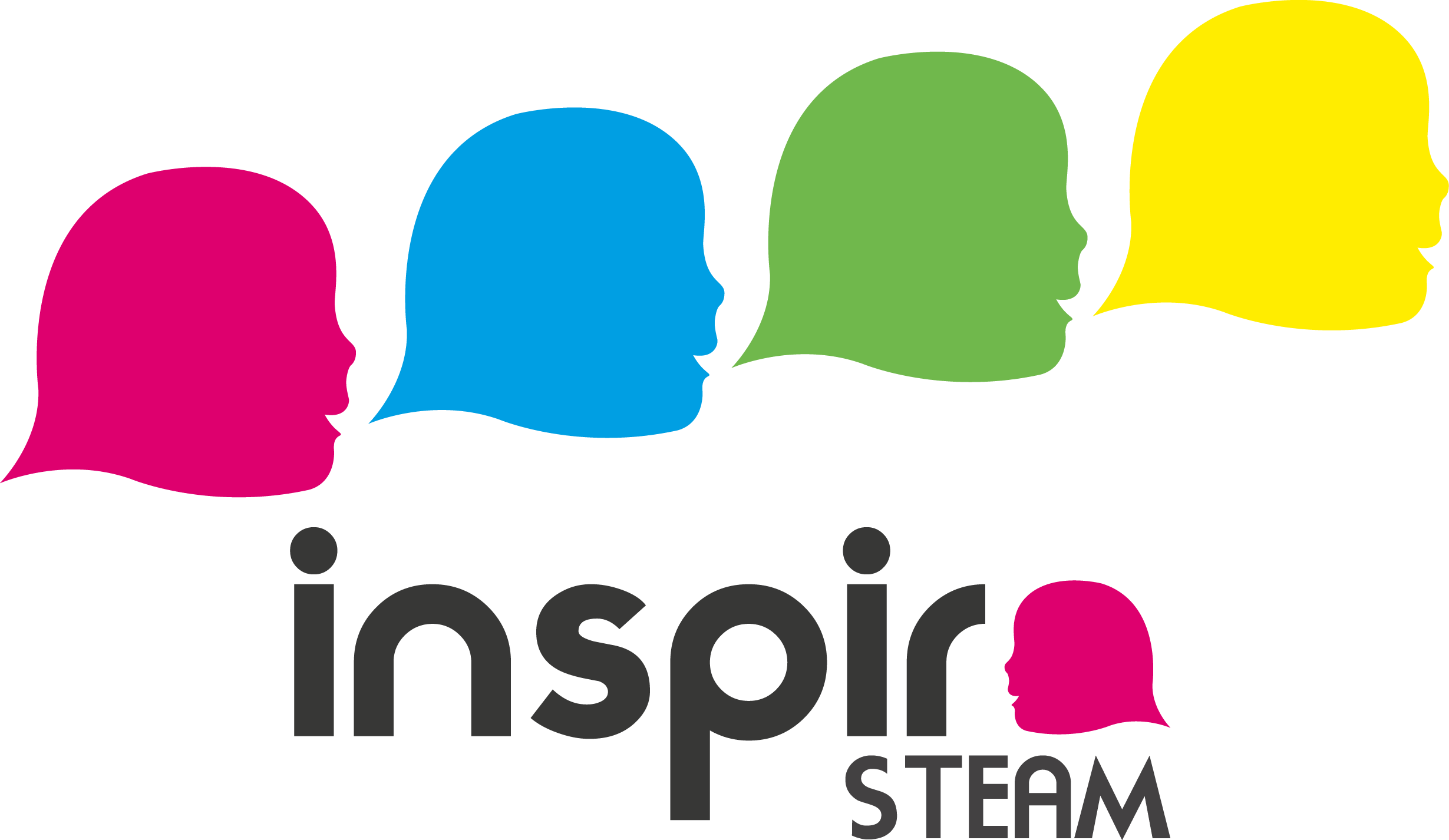
The long-term impact of the programme is currently being evaluated. The findings will be published as soon as they are available (see background documents).
Early results and input from participating entities indicated the lack of professional vocations in the world of young people's technology as a key challenge, especially in the case of young women. And they want to develop actions to raise awareness in society and energize boys and girls, especially girls, to promote their empowerment and overcoming the difficulties they find in choosing the training and profession they want.
The project reach includes several regions in Spain, thanks to the partnerships stablished with other institutions. Inspira STEAM has the collaboration of Innobasque in Euskadi, Edenway and the Rovira i Virgili University in Catalonia, CIONET in Madrid, the UCA and the University of Jaén in Andalusia, the University of Vigo and the University of Coruña in Galicia, the University of Oviedo in Asturias , the UCAM in Murcia and the financing of the three provincial councils: Bizkaia, Gipuzkoa and Álava as well as BBK, Roche, Barcelona Activa, Silk, HP Foundation, San Sebastián City Council, Euskadi Park Network, Debegesa, BASF, Generalitat de Catalunya, City Council of L'Hospitalet and Asturias 4STEAM. Since its inception, the programme has been continuously growing:
School year 2016-2017
School year 2017-2018
Scholar year 2018-2019
Scholar year 2019-2020
The project is funded from boty public resources and private resources. The entities that sign the Inspira STEAM Commitment collaborate with the project by covering the labor costs of the hours that the mentors participating in the project have to invest. The dedication of the mentors is recognised within the project. Their attendance at meetings, training and dissemination events that require it is also facilitated.
Dr. Shawn Michael Bullock is a Reader in the History of Science, Technology and Education at the Faculty of Education, Bye-Fellow of Emmanuel College at the University of Cambridge. The interview was published originally by Asturias4STEAM.
The full interview can be found via the link above.
Solaride is a project for students who want to contribute hands-on to solving our dependence on fossil fuels. To do so, the students are building a working solar car and taking it to the ultimate test run in Australia in the Bridgestone World Solar Challenge. The ultimate objective of Solaride is to promote engineering and its career options in Estonia.
Solaride is a project for students who want to contribute hands-on to solving our dependence on fossil fuels. To do so, the students are building a working solar car and taking it to the ultimate test run in Australia in the Bridgestone World Solar Challenge. The ultimate objective of Solaride is to promote engineering and its career options in Estonia.
The project gathers ambitious students from different fields, such as engineers, electronics, mechanics, software etc. from all over Estonia. The project has grown continuously into the size of an average company. Currently there are almost 70 team members. The team also has various prominent mentors from universities and companies to share their know-how with the students. Besides that, Solaride has strong support from cooperation with several Estonian universities and gives participating students the opportunity to gain practical knowledge and compete in an international competition. With this, the project promotes engineering and technology among the pupils and students.
The ultimate objective of Solaride is to promote engineering and its career options in Estonia. As a country Estonia faces a serious shortage of engineers and specialists, now and in the future. The overall aim of the project is to promote STEM career paths through hands-on experiences early on. The promotion of technology and engineering is therefore important to bring people to engineering and have the necessary workforce in the future. The programme also contributes to the development of innovation and science-based economy in Estonia. According to the analysis on the workforce needed in Estonia, in 10 to 15 years, 60% of the occupations are the kind of which we do not have today. Therefore, adapting with new and novel technology is critical.

The biggest impact of Solaride is raising the general knowledge about solar energy in Estonia. With the strong social media strategy, they effectively reach the general public and students on a large scale. It is hard to measure the overall impact due to the fact that Solaride has operated for a short time period. Despite that, Solaride has successfully involved big technology companies and several sponsors. In the social media, they have collaborated with several Estonian celebrities and influencers.
In the Solaride team, there are about 70 members. The project has s strong social media reach and the team participates in all big eventsin Estonia. Solaride has also organized several events on their own (mostly on the web due to the pandemic) and has reached thousands of people doing so.
The Solaride project is mainly funded by different sponsors, that subdivide:
Solaride is a project for students who want to contribute hands-on to solving our dependence on fossil fuels. In the context of the project students are building a working solar car and taking it to the ultimate test run in Australia in the Bridgestone World Solar Challenge. The ultimate objective of Solaride is to promote engineering and its career options in Estonia.
Despite its early phase, the project and its 70-man project team has garnered a large amount of media attention, developed partnerships with large companies and put solar energy-related career paths on the map for a large number of young people in Estonia.
The Merkuur Mobile Technology workshops introduce various trades, techniques and tools in the metal and wood industries to young people and to offer them hands-on opportunities to try and participate in the tasks associated with these trades in order to raise their career awareness and competitiveness in the fields of technology and engineering. The main objective is to give young people practical knowledge about engineering and technology. By educating young people and giving them early access to hands-on engineering possibilities,the programme aims to increase the interest of students to start a career in engineering.
The Merkuur programme has developed mobile workshops to introduce various trades, techniques and tools in the metal and wood industries to young people and to offer them hands-on opportunities to test the tasks associated with these trades in order to raise their career awareness and competitiveness in the fields of technology and engineering.
Merkuur has two mobile workshops and more than sixty different learning solutions to provide young people with hands-on opportunities to carry out tasks in metal and woodwork, electronics, bionics and many other engineering fields. The Mobile Workshops are self-built mobile classrooms and therefore workshop activities can take place all over Estonia. Schools, vocational school and other interested organizations can request the mobile classroom service at their premises.
In the beginning, the Mobile Workshop service and its activities were provided as a form of non-formal learning. Since 2018, the team has consistently worked on developing partnerships with various educational schools, vocational schools and colleges. Teachers and mentors of mobile workshops organise technology lessons, project days and hobby groups in schools. In addition to daily activities, the team has developed a modern methodological material used to introduce CNC equipment to young people and to implement their new knowledge both individually and in teams, while carrying out product development tasks, testing various material treatment methods and preparing metal and wood products with a real purpose.
The objective is to give young people practical knowledge about engineering and technology, which is measured by the number of kids participating in the activities of Mobile Workshop.
The objectives of the workshops are related to a broader government strategy to raise the popularity of engineering as a career choice due to the fact that Estonia is facing a shortage of engineers, failing to meet the current labour market demand as well as the expected demand in the future. In addition, the programme is associated with the aim to develop a research-intensive economy. By educating young people and giving them early access to hands-on engineering possibilities, it increases the interest of students in starting a career in engineering.
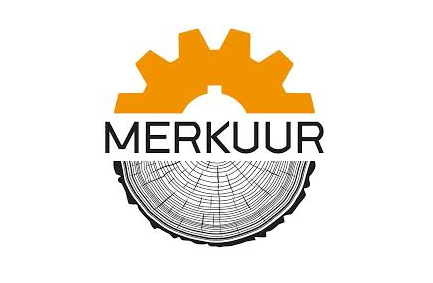
The Mobile Workshop gives the opportunity for young people to get acquainted with the real product development process by applying their critical thinking and problem-solving skills as well as modern technologies based on the principles of the natural sciences, engineering and mathematics. The team has also developed good partnerships with different schools, therefore bringing the opportunities to the school lessons. With that, the programme contributes to raising career awareness and competitiveness in the fields of technology and engineering.
The Mobile Workshops have a great impact on the areas that otherwise are dismissed or have limited opportunities, for example schools outside the big cities in the countryside. This helps to curb inequality and improve young people's access to science, technology and engineering.
The programme is also acknowledged by the Estonian Research Council as the Best New Initiative inn 2017, Special award for the best social enterprise of Brain Hunt in 2017, by the Federation of Estonian Engineering Industry as the Deed of the Year in 2017, and was awarded by the Estonian Ministry of Economic Affairs and Communications for promoting entrepreneurship and European Enterprise Promotion Awards with the first place of Investing in Entrepreneurial Skills in 2020.
The Mobile Workshop-concept reaches thousands of children all over Estonia. By the beginning of 2020, the Merkuur team has organised more than 700 science, technology and engineering workshops for about 7000 young people. Mobile Workshops actively cooperate with key figures and entrepreneurs in the fields of nature, the exact sciences and technology.
Merkuur Mobile Workshops is funded by several public funds, ministries and other organisations:
The Merkuur Mobile Technology workshops introduce various trades, techniques and tools in the metal and wood industries to young people and to offer them hands-on opportunities.
Due to their mobility, the Mobile Technology Workshops particularly impact areas that otherwise are dismissed or have limited opportunities.This helps to curb inequality and improve young people's access to science, technology and engineering.
Unicorn Squad is a privately funded, girls-only technology hobby group movement with a long term aim to increase the number of girls who would choose ICT and STEM related specialties as a career. The target group of the movement is girls in lower secondary schools. These hobby groups try to lessen girls “fear of technology”, increase girls’ interest in technology and robotics already in early ages. In addition, the programme scientifically measures if “girls only” approach has different effect compared to mixed classes.
According to Eurostat (see 'data' page) only 22.8% of employed ICT specialists in Estonia are women. In addition, girls are strongly underrepresented in extracurricular STEM courses among children aged 7-12 (for every ten boys, there is only one girl). The HK Unicorn Squad girls-only hobby groups aim to increase the number of girls that show an interest in STEM in this age-group (lower secondary education level) as well as maintaining that interest over time.
The founders of the movement are Kerstin and Taavi Kotka, a married couple, who started a “girls-only” technology hobby-group for their daughter Helena in September 2018, as she was kicked out from the technology hobby group at school given the explanation that the field is more suitable for boys.
Unicorn Squad hobby group is a “ready-to-use” solution. Teaching materials are fully prepared for the lessons along with video tutorials for the supervisor. Also, equipment for certain courses is provided by the programme. Course modules take place once a week. Teaching materials and equipment (e.g. robots and other teaching materials) for certain lessons are sent to mentors in a big plastic box weekly using a parcel machine. After using them, the mentor returns them or sends them to next group according to instructions from the HK Unicorn Squad project manager.
The interest and demand for girls-only technology hobby groups was so big that within two years the movement has engaged 1200 girls (age 7-14) all over Estonia. Active hobby groups are available in almost every county of the country. The interest keeps on growing and additional hobby groups are constantly opened.

HK Unicorn Squad has greatly impacted technical education for girls and the programme itself has become a success story in Estonia. At the current stage (with the formal launch of the programme in 2018) it is hard to tell the impact to the number of women in engineering due to the fact that the hobby group has operated for a short time period, but it is clear that HK Unicorn Squad has become a house-hold name. According to Taavi Kotka, one of the founders of HK Unicorn Squad, “the interest in the hobby group is far greater than they can offer right now.”
In addition, the hobby group has been a partner for other numerous projects and events, such as Rocket69 (TV show that has 100k+ viewers per episode - see profile at the 'programmes' tab) and as of 2021, the programme is contributing to the launch of the Rocket69 Science Studios.
The HK Unicorn Squad reaches about 1200 girls (aged 7-14) all over Estonia. The long-term goal is to offer the opportunity to take part of the technical hobby group to the same number of girls as boys. In Estonia, this translates to a long-term objective of about 2500 girls.
The programme is privately funded using a not-for-profit organisational model. The participation for kids is free.
Unicorn Squad is a privately funded, girls-only technology hobby group movement with a long term aim to increase the number of girls who would choose ICT and STEM related specialties as a career.
Since its launch in 2018, the programme has increased the number of girls (age 7-14) participating in STEM and ICT-oriented hobby groups from 1 girl for every 10 boys nearly five fold (1200 in total). Ultimately, the programme aims to double this number again, achieving a 50-50 gender distribution in the participants.
During a special ZDI webinar, European Commissioner Mariya Gabriel discussed gender gaps in STEM and STEAM with Mr. Klaus Kaiser (state secretary) and Ms. Sabine Verheyen (chairwoman of the Culture and Education Committee of the European Parliament). Please find below a short meeting report. A full video report of the event as well as a summary video (German subtitles) are available through the ZDI website (link above).
Meeting report
EU Commissioner Gabriel calls on youth: We need you and your ideas!
Mariya Gabriel, EU Commissioner for Innovation, Research, Culture, Education and Youth, and Sabine Verheyen, Chairwoman of the Committee on Culture and Education in the EU Parliament, discussed how the European Union can support STEM initiatives. The stimulating exchange between two women who are enthusiastic about youth and education would like to extend the success story zdi has written in North Rhine-Westphalia together with the children and young people in Europe.
From STEM to STEAM: Creating links with arts, humanities and social sciences
Commissioner Gabriel speaks with passion about the opportunities that a solid STEM education brings. "We need you" - she appeals directly to young people in Europe. She has no doubt that STEM knowledge is needed to solve social challenges. And she even opens up new perspectives: We need to put STEM into contexts and treat the content less abstractly. It is important to show the connections between STEM and other fields of study and to break down traditional boundaries. STEM becomes STEAM- the "A" is supposed to stand for art, culture, humanities and social sciences.
Klaus Kaiser, Parliamentary State Secretary to the Minister of Culture and Science of the State of North Rhine-Westphalia also addresses this aspect in his forward-looking greeting right at the beginning of the online discussion organised by zdi.NRW and the Representation of the State of North Rhine-Westphalia to the EU. "We are increasingly dealing with interdisciplinary knowledge," says Kaiser. Accordingly, it is necessary to show how STEM knowledge affects all areas of life. Girls and young women in particular could be inspired to take up STEM issues if these were brought into larger, attractive social contexts and if it was made clear what benefits physics, mathematics, technology or computer science bring, for example, to the development of solutions for climate change.
Reduce the Gender Gap and promote the talents of women
Gabriel proves that the gender gap is also a problem across Europe: Only about 30 percent of graduates in STEM subjects are female. And with regard to the important information and communication technologies, it is even only 20 percent. If the number of STEM graduates should be increased, the gender gap must be narrowed. Sabine Verheyen is obviously also very concerned about this topic. To this day, society conveys role models and stereotypes that divide the world into typical male and female professions and abilities.
At this point it becomes clear that Gabriel and Verheyen are pioneers: Both see the great opportunities an improved inclusion of all talents and potentials will bring. And both are committed to offering young people room and opportunities to develop themselves.
Supporting the Green Deal: Can STEM save the world?
Nevertheless, all discussants with the vision of extracurricular STEM education know that there is more than the mere shortage of skilled workers. During the discussion, Gabriel in particular repeatedly picks up on topics such as sustainability, digitalisation and environmental protection. All these topics are part of the European "Green Deal", which aims to realise a sustainable economy and make Europe a climate-neutral continent by 2050.
With zdi, topics such as environmental protection, sustainability and resource conservation are placed at an early age and taken up again and again in higher grades. Sharing these experiences with others, exchanging knowledge and working together across Europe is also in the interest of the zdi community.
The University of Ljubljana is the oldest and largest higher education and scientific research institution in Slovenia. The university was founded in 1919. It has approximately 38,000 undergraduate and postgraduate students and employs approximately 6,000 higher education teachers, researchers, assistants and administrative staff in 23 faculties and three arts academies. The University of Ljubljana is renowned for its quality social and natural sciences and technical study programmes, structured in accordance with the Bologna Declaration. Its projects keep pace with the latest developments in the areas of arts, sciences and technology at home and abroad.
In response to shortages of STEM skilled people in Slovenia, the University of Ljubljana is involved in a range of outreach activities. These include:
